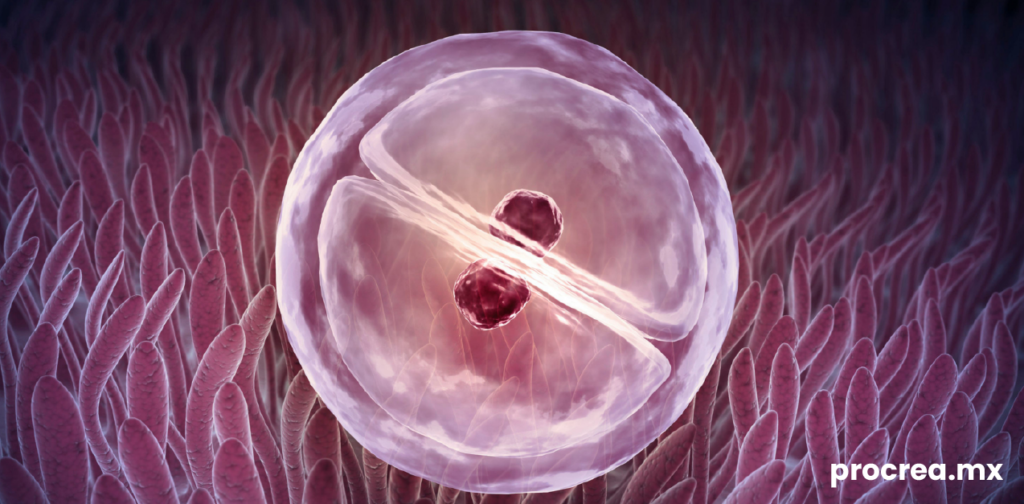Imagine being able to prevent certain genetic diseases from affecting your future baby. assisted reproduction gives us this unique opportunity to intervene in the pregnancy process, allowing the analysis of the embryo and providing couples facing genetic challenges with a chance to have a healthy baby. In this blog, we will explain what studies are conducted and the advantages they offer.
Benefits of Conducting Genetic Studies on the embryo
Genetic studies provide valuable information that can have a significant impact on health. One of the most notable benefits is their ability to identify hereditary diseases. This information allows for early intervention to reduce the risk of developing certain abnormalities.
In the field of assisted reproduction, genetic studies play a crucial role as they enable the identification of genetic anomalies in embryos before implantation, thereby improving the success rates of fertility treatments such as In Vitro Fertilization (IVF). This not only increases the chances of a successful pregnancy but also contributes to the overall health of the baby.
When is PGT-A performed? Preimplantation Genetic Testing for Aneuploidy (PGT-A?
PGT-A (Preimplantation Genetic Testing for Aneuploidy) is performed during an IVF process, generally before embryo transfer. After fertilizing eggs with sperm, the developing embryo is analyzed to detect chromosomal abnormalities. This helps select genetically normal embryos before implantation, improving the chances of a successful pregnancy and reducing the risk of miscarriages. It benefits couples who have experienced recurrent miscarriages, implantation failures, or those seeking to increase the chances of a successful pregnancy.
When is PGT-A performed? PGT-M?
PGT-M (Preimplantation Genetic Testing for Monogenic Disorders) is performed when there are known risks of hereditary genetic diseases in the family. Before IVF, cells are extracted from a developing embryo and analyzed to detect the presence of specific genetic mutations. This procedure allows couples with genetic risks to select embryos that do not carry the disease, increasing the chances of having a healthy baby.
At Procrea , we are committed to providing personalized solutions that bring you peace of mind and confidence in your assisted reproductionprocess. That's why we conduct the necessary studies throughout your journey. Reach out to us; our certified specialists will accompany you at every stage of the process with comprehensive care.















